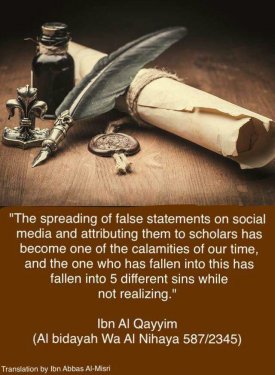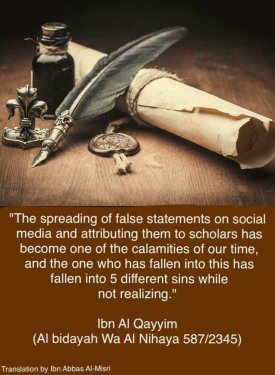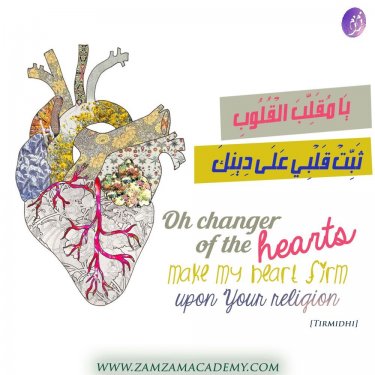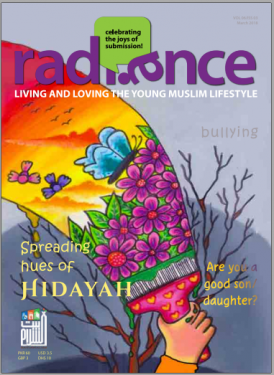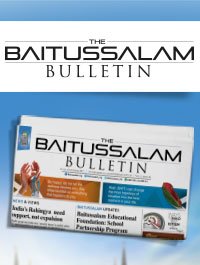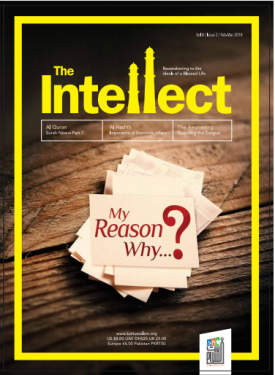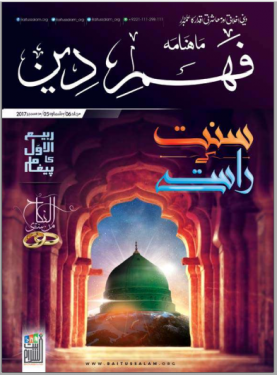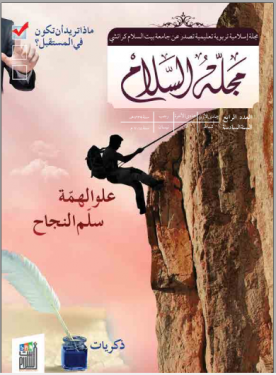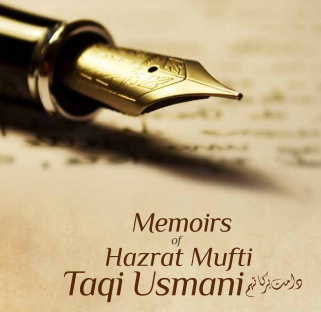-
Posts
1,751 -
Joined
-
Last visited
-
Days Won
106
Content Type
Profiles
Forums
Events
Everything posted by Bint e Aisha
-

Fiqh for Doctors/Medical Students
Bint e Aisha replied to Bint e Aisha's topic in Hanafi Fiqh (General)
Stopping Medical Treatment when there is no Expected Benefit Question #: 5899 Date Posted: 05-03-2004 <QUESTION> A dilemma facing many in my profession. I am a doctor, currently working in the intensive care unit with children. Although it is not a daily event, the question of withdrawing treatment in patients where further treatment is futile often arises. In the past where technologies such as ventilators, equipments and drugs such as inotropes (keeping the heart going) were not available these issues would have not risen as these groups of patients would (Allah willing) soon die. However, with modern technologies so far, a small albeit significant group can be sustained on the above treatment despite a futile outcome that results in the inevitable slow death. My questions are: 1) What is the Islamic ruling on withdrawing or limitations of treatment? 2) As a corollary to the above, what is the Islamic stand to the concept of ‘living will’? (A living will is a legal document that a sound-minded adult makes to set out the circumstances under which they could wish withdrawal of treatment, in the event that they cannot make the decision at such time). <ANSWER> In the name of Allah, Most Compassionate, Most Merciful, When a patient is severely ill in a way that further treatment is futile and apparently there is no chance of survival, then in such a case, in order to ease and hasten the death there are normally two procedures taken: a) Using of certain drugs and other methods that cause death, B) Withdrawing treatment in order to allow the patient to die naturally, As far as the using of certain drugs in order to hasten the death of the patient is concerned, there is no doubt that this is unlawful (haram) in Shariah. The human body is a trust (amanah) given by the Almighty Creator to the human being which he himself does not own. As such, according to Islam, it is impermissible for an individual to tamper with even his own body that was given to him as a trust. Islam regards human life as sacred. Allah Most High says: “And verily we have honoured the children of Adam.” (Surah al-Isra, V.70) It light of the above, it becomes evident that it is unlawful (haram) to use methods and means that would actively cause a person do die. The Messenger of Allah (Allah bless him & give him peace) said: “Whoever intentionally throws himself from a mountain and kills himself, will be in the (Hell) Fire falling down into it and abiding therein eternally forever; and whoever drinks poison and kills himself with it, he will be carrying his poison in his hand and drinking it in the (Hell) Fire wherein he will abide eternally forever; and whoever kills himself with an iron weapon, will be carrying that weapon in his hand and stabbing his abdomen with it in the (Hell) Fire wherein he will abide eternally forever.” (Sahih al-Bukhari & Sahih Muslim) The Messenger of Allah (Allah bless him & give him peace)) also said: “There was amongst those before you a man who had a wound. He was in (such) anguish that he took a knife and made with it a cut in his hand, and the blood did not cease to flow till he died. Allah the Almighty said: “My servant has himself forestall me; I have forbidden him Paradise.” Therefore, in order to save oneself from undue pain and hardship, it will not be permissible to use methods that will cause death. If the medical expert did carry this out, it will be tantamount to murder. If the patient gave his consent to this, it will be regarded as suicide. With regards to withdrawing treatment from patients in order for them to die naturally and in a dignified way, it should be remembered that according to the majority of scholars medical treatment is not something that is necessary (wajib) upon the person inflicted with a illness. It is merely something that is permissible. Some scholars went to the extent to say that it is preferable to abstain from treatment and have patience (sabr) rather than treating the illness or disease. This understanding is based on a Hadith narrated by the Companion Sayyiduna Abd Allah ibn Abbas (Allah be pleased with him) that a girl was inflicted with the disease of epilepsy, thus she came to the Messenger of Allah (Allah bless him & give him peace) and asked him to supplicate to Allah for her. The Messenger of Allah said to her: “If you wish you may exercise patience and receive paradise in return or if you want I can ask Allah to cure you.” She said: “I would like to remain patient on this severe illness (and receive the rewards), but the only thing is that at times due to this illness, parts of by body become exposed, so please ask Allah that it does not open up. The Prophet (Allah bless him & give him peace) made Dua for her. (Recorded by Imam al-Bukhari & Imam Muslim in their respective Sahih collections) Imam Abu Hamid al-Ghazali (Allah have mercy on him) mentions in his famous Ihya uloom al-Din that the majority of the scholars hold medical treatment to be merely something that is permissible, whilst others regard it as recommended (mustahab) and a very few number of scholars consider it to be necessary (wajib). Generally, Medical treatment is thought to be a means that may cure a patient. It is not something that guarantees restoring of health for the person using medication, for the fact that many times despite using medication an individual is not cured. It is stated in the Hanafi Fiqh reference book al-Fatawa al-Hindiyya: Means used for the removing of harms are of three types. 1) Those that remove potential harm for certain (maqtu’) such as the drinking of water in order to quench thirst and eating of food in order to remove hunger. 2) Those that by exercising them, it is presumed health will be restored such as medical treatment. 3) Those that may cure (but less significant than the second situation) such as the using of amulets, etc… As far as the first set of means are concerned, abstaining from using them is no way considered as part of reliance and trust in Allah (tawakkul), rather it is unlawful to refrain from using these means. If a person was to die due to not drinking water, he will be sinful. The last category of means is not essential in that complete reliance in Allah is only achieved by abstaining from using them. With regards to the middle category such as using medication, using it is not contrary to the concept of Tawakkul, and abstaining from its usage is not a sin also. It is in between the two categories.” (al-Fatawa al-Hindiyya, 5/355) It becomes clear from the above excerpt that to abstain for medical treatment is not unlawful in Shariah, and if an individual did die due to this, he/she will not be sinful. However, the Messenger of Allah (Allah bless him & give him peace) did himself use medication and also encouraged the Companions to resort to medication. In a Hadith it is stated: “O servants of Allah! Use medication, for Allah Almighty has not created any illness except that He has also produced its cure, besides one thing. The Companions asked: “What is that?” He replied: “death”. (Tirmidhi 2039, Abu Dawud 3855, Ahmad 4/278 & Ibn Majah 3436) In light of the above, it would generally be advisable to resort to medication and use the means provided by Allah Almighty. However, in a situation where further treatment is futile and there is no apparent hope for the patient to be cured, then it would be permissible to withdraw treatment with the consent of the patient or his immediate relatives. Also, it will be permissible for the patient to make a living will that gives permission to withdraw treatment in such situations. And Allah knows best [Mufti] Muhammad ibn Adam Darul Iftaa Leicester , UK http://www.daruliftaa.com/node/5899?txt_QuestionID=- 4 replies
-
- medico
- medical student
-
(and 1 more)
Tagged with:
-

Fiqh for Doctors/Medical Students
Bint e Aisha replied to Bint e Aisha's topic in Hanafi Fiqh (General)
Women Seeking Medical Treatment from Male Doctors Question #: 4754 Date Posted: 28-03-2004 <QUESTION> What are the guidelines in women seeking treatment from men doctors? Is it permissible to visit a male doctor when a female doctor is available, especially when one may have to expose the Awra? <ANSWER> In the name of Allah, Most Compassionate, Most Merciful, In the situation where a Muslim female is in need of medical treatment, the endeavour should be that she is treated by a female medical doctor, preferably a Muslim. If a female practitioner is: 1) Easily available, 2) One is satisfied and content with her medical treatment, 3) There is no other valid legal (shar’i) excuse for not resorting to her treatment, then in such a case, it would not be permissible to seek the medication of a male doctor, rather, the illness must be treated by a qualified female doctor. It is stated in al-Fatawa al-Hindiyya, a renowned Hanafi Fiqh reference: “If a woman has a wound in a part of the body that is impermissible for a male to look at (m, meaning other than the face, hands & feet, for they are absolutely part of awra), it will be impermissible for her to receive treatment from a male doctor, rather a female should be instructed to treat her. If a female expert is not available, neither is there a female who can be instructed to treat her… then in such a case it would be permitted for a male doctor to treat her, provided there is a genuine need. It will be necessary for her to cover other than the effected area, and he must lower his gaze as much as possible.” (al-Fatawa al-Hindiyya, 5/330) However, if the need is only for consultation or the medication is related to a part of the body that is not part of Awra, then it would be permissible to seek the treatment of a male doctor, although the treatment of a female doctor will still be preferable. If the above-mentioned (3) points are not found, in that a medical female expert is not easily available, or if she is available, one is not content with her medication, or there is some other valid legal excuse, then in such a indispensable situation, it will be permissible to resort to the treatment of a male doctor, provided the male doctor only looks at (and handles) the effected area. The rest of the body of the female must remain covered. Imam al-Haskafi (Allah have mercy on him) states: “In the situation of a male doctor treating a female, he should only look at the effected area (m, whenever reasonably possible), for cases of need are restricted to the actual need. And it is preferable that the male doctor teaches and instructs a female in order to treat her, for looking (and treating) someone from the same gender is the lesser of two evils (m, i.e. when looking at parts of Awra).” Imam Ibn Abidin (Allah have mercy on him) explains in his Radd al-Muhtar that, if the treatment is related to the private parts, then only in extreme situations will it be permitted for her to seek treatment of a male doctor. He states: “If the treatment is on her private parts, then it is necessary that a female is instructed to treat her. If this is not possible and it is feared that the woman may perish or undergo unbearable pains, only then will it be permissible for a male to treat her.” (See: Radd al-Muhtar ala al-Durr al-Mukhtar, 6/371) The same has been mentioned in other Hanafi Fiqh references. See: Ibn Nujaym, Bahr al-Ra’iq, 8/192, Qadhikhan in his Fatawa, 3/409 & Bada’i al-Sana’i, 5/124. Also, a Muslim doctor would be preferred over a non-Muslim for obvious reasons. However, if (once again) the three points are not met, then it would be permissible to seek the treatment of a non-Muslim doctor. Therefore the order in seeking medical treatment would be: a) Muslim female doctor, b) Non-Muslim female doctor, c) Muslim male doctor, d) Non-Muslim male doctor, And in moving from one stage to another, the above three points should be kept in mind. The preference of a non-Muslim female doctor over a Muslim male doctor is due to the fact that, looking at the awra of someone from the same sex (as mentioned in Durr al-Mukhtar) is lesser of an evil. Also, the covering of one’s nakedness in front of a (non-Mahram) male has been given more importance than covering in front of a non-Muslim female. And Allah Knows Best [Mufti] Muhammad ibn Adam Darul Iftaa Leicester , UK http://www.daruliftaa.com/node/4754?txt_QuestionID=- 4 replies
-
- medico
- medical student
-
(and 1 more)
Tagged with:
-

Fiqh for Doctors/Medical Students
Bint e Aisha replied to Bint e Aisha's topic in Hanafi Fiqh (General)
Organs Transplants in Islam- 4 replies
-
- medico
- medical student
-
(and 1 more)
Tagged with:
-

Fiqh for Doctors/Medical Students
Bint e Aisha replied to Bint e Aisha's topic in Hanafi Fiqh (General)
Organ donation and Autopsy QUESTION Is organ donation and autopsy permissible in islam,can u xplain prohibition of dissection of cadaver according to Quraan or Hadiths? ANSWER In the name of Allah, Most Gracious, Most Merciful Assalaamu `alaykum waRahmatullahi Wabarakatuh 1) Many Islamic scholars and Jurists have written on the subject of organ transplant. Over the decades, medicine has improved and advanced dramatically, taking medical technology to extreme heights. Today, through the vast medical advancement, almost any transplant of the human body can be performed. Owing to the technological medical changes, prominent and renowned jurists of the world have carefully analyzed the process of organ transplant and upon investigation made the following observations: 1) When any person's limb or organ becomes unusable and that limb or organ is needed to function in the future by a suitable replacement then the following conditions must be considered: a) Use of a non-living artificial component. b) Using the organ of those animals that are permissible to eat and were slaughtered according to the Islamic law. If there is an imminent fear of loss of life or danger of losing the organ and the replacement is only found in haraam animals or in permissible animals (which can be eaten) but not slaughtered according to Islamic law, then use of such a component will be permissible. However, if there is no imminent danger of loss of life then it will not be permissible to use anything from the pig. 2) Similarly, a transplant of any nature whatsoever is permissible from one part to another part of the body of the same person when necessary. 3) The sale of any part of the human body is haraam. 4) If any ill person reaches a stage where a specific organ becomes unusable to such an extent that medical experts are absolutely certain that besides the human organ there is no other life-saving substitute, the human organ is easily available to the patient, and the patient's life is in danger, then in that dire need a human organ transplant will be permissible. 5) When a perfectly healthy person on the advice of an expert physician confirms that the removal of one kidney will not harm nor cause ill-health whatsoever and considering the deteriorating health of his sick immediate family member which may cause death and there is no other alternate or substitute then this will be permissible with the condition that the kidney be donated and not sold. 6) The wasiyya (bequest) of the organs after death is forbidden in shari'ah. 2) Dissection of a cadaver (autopsy) is also impermissible due to the same reasons mentioned above. Rasulullah (Sallallahu Alayhi Wa Sallam has said: كسر عظم الميت ككسره حيا "Breaking the bone of a dead person is similar (in sin) to breaking the bone of a living person." (Sunan Abi Dawud, Vol. 2, P. 101, HM Saeed) However, it will only be permissible in cases of necessity when it is required by law or in criminal cases. Most of the scholars of the Arab world have approved autopsies for medical science research. This issue was discussed by the Islamic Fiqhi Academy of Makkah Mukarramah in October of 1987 where permissibility was given as long as the following conditions are observed: a) An approval should be obtained from the deceased before his death or his heirs should agree to it after his death. b) The body should not be opened up more than what is necessary. c) Only female doctors should be allowed to a post-mortem of a female body. d) The body should always be buried in the end. (Fiqhi Feslain, P. 183-184, Islamic Fiqhi Academy, India) الإنتفاع بأجزاء الآدمي لم يجز (Fatawa Alamgiree, Vol. 5, P. 354, Rashidiyya) والآدمي مكرم شرعا وإن كان كافرا فإيراد العقد عليه وابتذاله به وإلحاقه بالجمادات إذلال له . أي : وهو غير جائز (Raddul Muhtar, Vol. 5, P. 58, HM Saeed) والآدمي مكرم شرعا وإن كان كافرا فإيراد العقد عليه وإبداله به وإلحاقه بالجمادات إذلال له . (Fathul Qadir, Vol. 6, P. 425, Mustafa Babil Halbi) (Fatawa Mahmudiyya, Vol. 18, P. 336-338, Faruqiyya) And Allah knows best Wassalam Ml. Asif Umar, Student Darul Iftaa Checked and Approved by: Mufti Ebrahim Desai http://askimam.org/public/question_detail/16282- 4 replies
-
- medico
- medical student
-
(and 1 more)
Tagged with:
-
Buying and selling of Bones Question: I am a medical student. Every medical student need human skeleton(bones) for their educational purposes. So I brought a human skeleton(bones) 3 years ago @ of 6500 taka. Now there is no use of these human skeleton (bones) for me. I sold the bones to other medical student in my medical college student & take about 7000 taka. Can I use these money in my own purpose or not? What should I do now? Answer : 150667 Published on: May 18, 2017 بسم الله الرحمن الرحيم (Fatwa: 782/742/SD=8/1438) None is the owner of human corpse. Hence it is unlawful and haram to sell and purchase it. Thus, the amount, mentioned there in the question, shall not be lawful for you to use. You should return the amount to the purchaser and take back the corpse and then return it to the person whom you bought it and take back your money. If it is not possible, then surrender the corpse to the heirs, and if you don’t know them then bury it. Allah knows Best! Darul Ifta, Darul Uloom Deoband http://www.darulifta-deoband.com/home/en/Halal--Haram/150667 June 11, 2017 Question: Assalamu alaikum wr Is it permissible to buy real skull and other bones of the body for study purposes? Answer: و علیکم السلام و رحمة الله و بركاته. It is haraam to buy and sell human body parts. If it is a necessity for you to buy for doing your studies, and you cannot get them in any other way, then you can do so, but it will still be haraam. Furthermore, you can not sell them further and you should simply donate them to someone else. Also, you can ask your senior students to give you these bones free of charge, and you will give them a gift for the value of the bones. Allah knows best.. Mufti Ali Munir
- 4 replies
-
- medico
- medical student
-
(and 1 more)
Tagged with:
-

The Benefits of Belief in Taqdeer and Tawakkul
Bint e Aisha replied to Naqshband66's topic in Aqeedah (Beliefs)
TITLE How do we know that failure was because of laziness or Taqdeer? QUESTION How can we determine that behind our failure in a specific task whether our laziness is culpable or Allah's will is responsible? ANSWER In the Name of Allah, the Most Gracious, the Most Merciful. As-salāmu ‘alaykum wa-rahmatullāhi wa-barakātuh. We are living in the world of means. [Asbaab]. We are required to adopt means to fulfil our needs. If one sits back and does not adopt means, then the failure is definitely attributed to one’s negligence. When one adopts means, he should not trust in his means, as the means are not effective in themselves. Our belief is Allah is muassire haqeeqi [the real causer of effects]. To place ones trust in ones means is against our belief. Once a person adopts all the necessary means in achieving anything, he should place his trust in Allah and Taqdeer. Whatever happens after that, whether ones objective is fulfilled or not, it is the decision of Allah. If ones objective is not fulfilled, he will still be rewarded for adopting means and submitting to Allah and Taqdeer. The greatest act of worship is to submit to Taqdeer and be happy with the decree of Allah. If this attitude is entrenched in an individual, he will have no grief and regrets for anything. And Allah Ta’āla Knows Best Ridwaan Ibn Khalid Esmail [Kasak] Student Darul Iftaa Katete, Zambia Checked and Approved by, Mufti Ebrahim Desai. http://askimam.org/public/question_detail/37393 -

The Benefits of Belief in Taqdeer and Tawakkul
Bint e Aisha replied to Naqshband66's topic in Aqeedah (Beliefs)
Be content with the decree of Allah Abu Huraira reported Allah's Messenger ( صلى الله عليه وسلم ) as saying: A strong believer is better and is more lovable to Allah than a weak believer, and there is good in everyone, (but) cherish that which gives you benefit (in the Hereafter) and seek help from Allah and do not lose heart, and if anything (in the form of trouble) comes to you, don't say: If I had not done that, it would not have happened so and so, but say: Allah did that what He had ordained to do and your" if" opens the (gate) for the Satan. حَدَّثَنَا أَبُو بَكْرِ بْنُ أَبِي شَيْبَةَ، وَابْنُ، نُمَيْرٍ قَالاَ حَدَّثَنَا عَبْدُ اللَّهِ بْنُ إِدْرِيسَ، عَنْ رَبِيعَةَ بْنِ عُثْمَانَ، عَنْ مُحَمَّدِ بْنِ يَحْيَى بْنِ حَبَّانَ، عَنِ الأَعْرَجِ، عَنْ أَبِي هُرَيْرَةَ، قَالَ قَالَ رَسُولُ اللَّهِ صلى الله عليه وسلم " الْمُؤْمِنُ الْقَوِيُّ خَيْرٌ وَأَحَبُّ إِلَى اللَّهِ مِنَ الْمُؤْمِنِ الضَّعِيفِ وَفِي كُلٍّ خَيْرٌ احْرِصْ عَلَى مَا يَنْفَعُكَ وَاسْتَعِنْ بِاللَّهِ وَلاَ تَعْجِزْ وَإِنْ أَصَابَكَ شَىْءٌ فَلاَ تَقُلْ لَوْ أَنِّي فَعَلْتُ كَانَ كَذَا وَكَذَا . وَلَكِنْ قُلْ قَدَرُ اللَّهِ وَمَا شَاءَ فَعَلَ فَإِنَّ لَوْ تَفْتَحُ عَمَلَ الشَّيْطَانِ " . Reference : Sahih Muslim 2664 In-book reference : Book 46, Hadith 52 USC-MSA web (English) reference : Book 33, Hadith 6441 (deprecated numbering scheme) -
? موبائل کی عادت ہاتھوں میں موبائل ہے عبادت سے دُور ہوں سردارِ انبیاء کی اطاعت سے دُور ہوں دعوت سے دُور، پیرِ طریقت سے دُور ہوں اغیار کے قریب ہوں مِلت سے دُور ہوں تسبیح ہے نہ قرآن ہے ہاتھوں میں آجکل اذکار کے انوار و تلاوت سے دُور ہوں جب سے میں حسینوں کا طلب گار ہُوا ہوں آقائے نامدار کی مِدحت سے دُور ہوں یہ میری بدنصیبی یا اثراتِ معصیت خدامِ صحابہ کی جماعت سے دُور ہوں تلوار کیا اُٹھاوں گا دشمن کے مقابل مسواک جیسی بہتریں سُنت سے دُور ہوں غافل سا ہوں میں کُونُو مَعَ الصّادِقِین سے سچوں کی ہمنشینی و خدمت سے دُور ہوں سیلفی بھی معصیت ہے رِیا ہے مگرمیں کیوں توبہ سے دُور اشکِ ندامت سے دُور ہوں صوفی ہوں،نہ داعی ہوں،نہ غازی ہوں میں ہُدہُد جُھوٹوں کا ہمسفر ہوں صداقت سے دُور ہوں ✍ہُدہُد الہ آبادی
-
موبائل موبائل کے فتنے میں سب مُبتلا ہیں جو پہلے نہیں تھے وہ اب مُبتلا ہیں مُبلغ ، مُدّرِس ، مُجاہد ، مُقرّر عَجَب شے کی لَت میں عَجَب مبتلا ہیں مُصور، مُصنّف، زمیں دار ، دہقاں میراثی و عالی نَسَب مبتلا ہیں کتابوں کے شوقین بھی زَد میں آئے جو سمجھاؤ کہتے ہیں کب مبتلا ہیں کئی بِیبِیاں ہم سفر ڈھونڈتی ہیں کئی بِیبِیاں بے سبب مبتلا ہیں میسنجرسےنکلےتو واٹس ایپ میں ڈھوبے یوں ہی خوامخواہ روز و شب مبتلا ہیں مُسلسل موبائل اُٹھائے ہوئے ہیں عَجَم مُبتلا ہیں عَرَب مُبتلا ہیں گنواروں پہ تنقید کرتے ہو ہُدہُد کہ افسوس اہلِ اَدَب مُبتلا ہیں ہدہد الہ آبادی
-
Play the Long Game ? لو فرج الله عن يوسف في أول ابتلائه ، لما آلت إليه خزائن مصر... قد يطول البلاء ليعظم العطاء... فثق بالله و لا تستعجل ❝ If Allah granted relief to Prophet Yusuf at the first hurdle of his weariness (and fatigue), then contrast that with the treasures of Egypt that came to him... One's trial/tribulation may be prolonged in order to magnify the gifting... Trust in Allah and do not be in haste. ❞ ~ عبد العزيز الشثري
-
Times for Ishraq and Chasht Prayers By Mufti Ebrahim Desai POSTED: 18 SHAWWAL 1423, 23 DECEMBER 2002 Q.) What's the starting, ending and Mustahab time for Ishraaq and Chaast Prayers? [Muhammad Faizan] A.) In a lengthy Hadith, Sayyidna Ali, Radi-Allahu anhu, is reported to have said, 'In the morning when the sun rises to the height of that the same as it is at the time of Asr, the Prophet used to perform 2 Rakaats (Salatul Ishraaq). When the sun rose in the east to the height where it is in the west at the time of Dhuhr Salat, he performed 4 Rakaats (Salat al-Dhuhaa, Chast).' (Shamaail Tirmidhi, Hadith No.271) According to the Fuqahaa (jurists) and Muhadditheen (scholars of Hadith), the time for Salat al-Dhuhaa is from the morning after the Makrooh time passes till Zawaal. But according to the Sufis this period covers the time for two separate Salats, one is Ishraaq and the other is Dhuhaa. The Sufis substantiate their view from the above mentioned Hadith of Sayyidna Ali, Radi-Allahu anhu, and other narrations. (Khasaail Nabawiy pg.292) Ishraaq Salat Rasulullah is reported to have said that Allah Ta'ala says, 'O son of Aadam, perform 4 Rakaats of Salat (Ishraaq) in the early part of the day. I shall help you in accomplishing all your responsibilities during the rest of the day.' (Mishkaat pg.116) In another narration of Tirmidhi, Rasulullah is reported to have said, 'He who performs Fajr Salat with Jamaat and remains seated in the same place while engaging in Dhikr until after sunrise and thereafter performs 2 Rakaats Nafil Salat, (Ishraaq), he will obtain the Thawaab of one Hajj and one Umrah.' (Tirmidhi). From the above Ahaadith, we learn that the number of Rakaats to be performed are 2 or 4 Rakaats, and the Mustahabb method of performing it is to remain seated in your place of Salat after Fajr and engage in Dhikr, etc. until sunrise. Then, approximately, 10-15 minutes after sunrise perform 2-4 Rakaats. 'If a person gets occupied in some worldly activity after the Fajr Salat, and after sunrise he offers Ishraaq Salat, this will also be permissible although the reward will be less.' (Bahishti Zewar part2 pg.30) Dhuhaa Salat Sayyidna Anas, Radi-Allahu anhu, reports that Rasulullah (Sallallaahu Alayhi Wasallam) said, 'Whoever performs 12 Rakaats of Salat al-Dhuhaa, Allah Ta' ala will build for him a castle of gold in Jannah.' (Mishkaat pg.116) It is reported that Sayyidna Aaisha (Radhiallaahu Anha) used to perform 8 Rakaats of Salat al-Dhuhaa. She said that even if her parents arose from the grave, she would not leave Salat al-Dhuhaa to go and meet them. (Ibid). Rasulullah is reported to have said, 'Whoever offers 2 Rakaats of Salat al-Dhuhaa, all his sins will be forgiven even though they are as much as the foam of the sea.' (Ibid) 'Salat al-Dhuhaa consists of 2 - 12 Rakaats and it is preferable to perform 8 Rakaats.' (Raddul Mukhtaar vol.1 pg.505) The Mustahabb (preferred) time of performing Salat al-Dhuhaa is after 1/4 of the day has passed. This is deduced from a Hadith of Muslim. (Halabi; Sharah Kabeer pg.390). From many Ahaadith, we understand that Salat al-Dhuhaa should be performed after the sun has risen quiet high. Because the Fuqahaa and Muhadditheen are of the opinion that the commencement of the time of Salat al-Dhuhaa is the same as that of Ishraaq (i.e. immediately after sunrise), the Ulama have stated that 'if due to lack of time, one performs the Salat of Ishraaq and Dhuhaa together at one time, that too will be correct.' (Our Namaas pg.44) And Allah Ta'ala Knows Best http://albalagh.net/qa/ishraq_chasht_times.shtml
-
Question: السلام علیکم Are women allowed to wear watches when going out or does it come under the category of zeenat? Answer: Mufti Ismail Moosa: Wassalam, If its concealed under the sleeve or glove, it is fine. If it not concealed, it must be a basic watch. If it is elegant and expensive, it will be classified as Zeenah. And Allah knows best
-
السلام علیکم جزاك الله خيرا for this beneficial topic. I've moved it from general Islamic articles to the health section. Hope it is fine with you.
-
-
-
A British doctor says: "In Britain, medicine is so advanced that we cut off a man's liver, put it in another man, and in 6 weeks, he is looking for a job."... ...The German doctor says: "That's nothing, in Germany we took part of a brain, put it in another man, and in 4 weeks he is looking for a job." The Russian doctor says: "Gentlemen, we took half a heart from a man, put it in another's chest, and in 2 weeks he is looking for a job." The American doctor laughs: "You are all behind us. A few months ago, we took a man with no brain, no heart, and no liver and made him President. Now, the whole country is looking for a job!"
-
-
Lady: My husband just swallowed paracetamol by mistake, what shall I do? Dr: Give him headache now. Why waste medicine! :D
-
-
-
BR120-S09 - [English Discourse] Harms of disobedience...
-
Proper Use Of Our Eyes - Shaykh Husain Abdul Sattar https://youtu.be/v4reTSyxMBI
-
Baitussalam Publications RADIANCE You are radical, you are young, full of life, zest and passion. And so we bring a treat to the radiance in your soul. Packed with premium, gripping Islamic literature an stories for young Muslims with an element of fun and fancy that are sure to keep you hooked and energize your spirits as well. The best source of information & entertainment for our younger generations and specially teenagers. View Issues Subscribe Now For International Subscription $ 35 For Local Subscription PKR 720 BULLETIN With so much news and happening so quickly in this ever changing world of ours it is very important to get direction to current affair in light of Shariah. The Bulletin is designed to do just that. Read what is happening in the world and how it concerns us and what our reactions to it should be. An engaging and interesting product that appeals to all ages. View Issues Subscribe Now For International Subscription $ 0 For Local Subscription PKR 0 INTELLECT MAGAZINE A magazine that appeases “the Intellect”, awakens the soul with its variety of material ranging from educational write-ups, young adult-related matters, solution of contemporary issues, comments on societal practices to inspirational pieces pertaining to one’s faith and ideals. A family-oriented magazine that is much liked by the readers for its high quality reading content, eye-catching presentation style and ability to interest people across the globe of all ages and backgrounds. View Issues Subscribe Now For International Subscription $ 45 For Local Subscription PKR 700 FAHMEDEEN MAGAZINE A very unique URDU magazine in which you will very interestingly written content on spirituality, serious current issues and challenges of Shariah today & their solutions. The magazine also includes material for youth by including story write-ups on all matter. This is a magazine for the entire family and serves as one of the most authentic source of Shariah information present in the market today due to its prestigious advisory board & write-ups by famous and renowned scholars. View Issues Subscribe Now For International Subscription $ 35 For Local Subscription PKR 520 MAJALLD US SALAM View Issues Subscribe Now For International Subscription $ 0 For Local Subscription PKR 0 ARTICLES View Issues Subscribe Now For International Subscription $ 0 For Local Subscription PKR 0

.thumb.jpeg.4e875ee4a2a9746d61b519e0b2aad8fe.jpeg)
.jpeg.6e6a17ab2da039da914e1e1e647974cb.jpeg)



